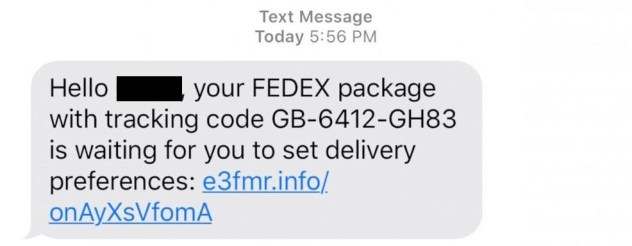Another trio of identity theft scams to look out for

Once again, we’re bringing you a trio of scams that are happening around the country. We think you should keep an eye out for them before they come to your area.
The first scam literally is one that is happening all across the country. The U.S. Attorney’s Office has issued a warning about a Social Security scam that’s targeting seniors. Scammers are posing as the Department of Justice and are looking to steal personal information. The scammers will leave a number to call back which will lead you to a phony investigator who will ask you for your personal information. If you receive one of these phone calls, you’re asked to report them to the Federal Trade Commission at 877-382-4357 or the FTC website.
The Department of Health from the state of North Dakota is reporting that residents there have been receiving worrying messages about COVID-19. People there have been receiving texts, emails, and even letters telling them that they’ve tested positive for coronavirus. However, many of the people receiving these messages haven’t even been tested for coronavirus. The messages contain a link that directs them to a website where they’re asked for personal information. You should never click on links from or open any attachments from someone that you don’t know personally.
Lastly, if you find yourself staying at a hotel on a getaway, be careful what information you give over the hotel phone. Police in Wrightsville, North Carolina are warning vacation goers about a scam that has hit their area. Police there say that scammers are calling hotel rooms posing as the front desk and asking for personal information. Sometimes the scammers will even try to get financial information out of their victims. Please keep in mind that the hotel will not ask for payment information away from the front desk. If you receive a call like this while staying at a hotel either call the front desk directly or go straight to the front desk personally.











Leave a Reply